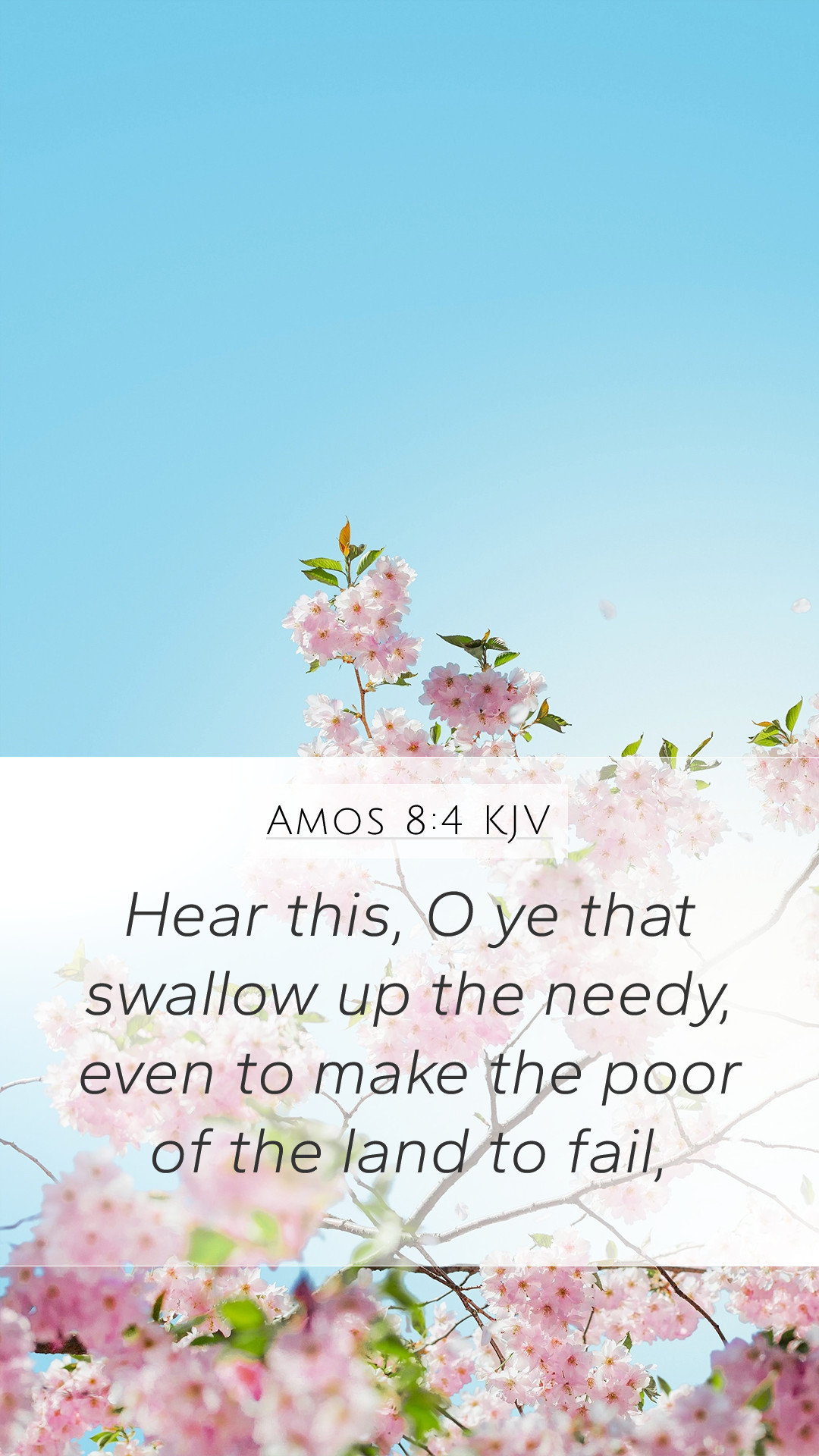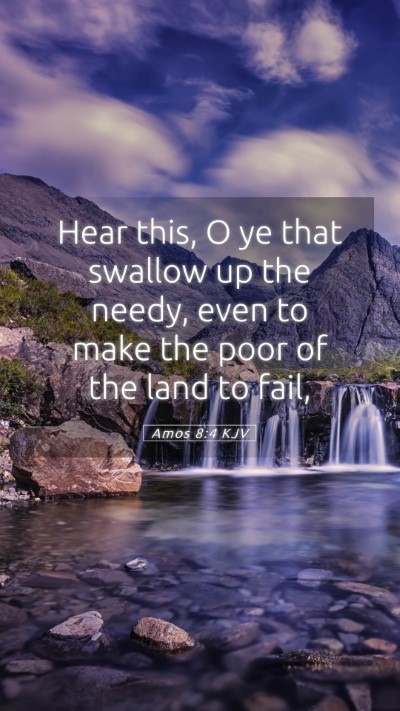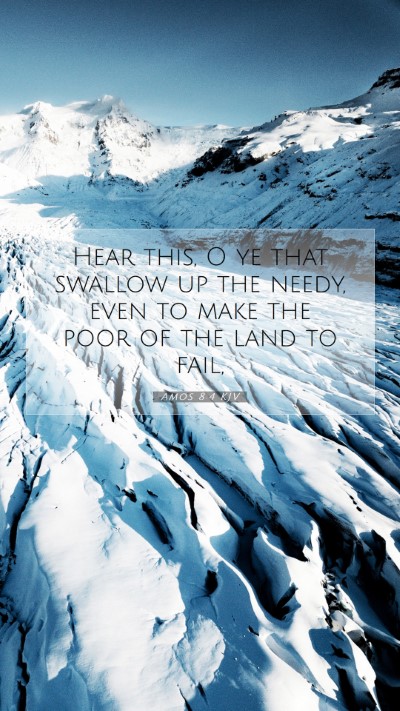Old Testament
Genesis Exodus Leviticus Numbers Deuteronomy Joshua Judges Ruth 1 Samuel 2 Samuel 1 Kings 2 Kings 1 Chronicles 2 Chronicles Ezra Nehemiah Esther Job Psalms Proverbs Ecclesiastes Song of Solomon Isaiah Jeremiah Lamentations Ezekiel Daniel Hosea Joel Amos Obadiah Jonah Micah Nahum Habakkuk Zephaniah Haggai Zechariah MalachiAmos 8:4 Meaning
What is the meaning of Amos 8:4?
Hear this, O ye that swallow up the needy, even to make the poor of the land to fail,
Amos 8:4 Bible Verse Meaning
Understanding Amos 8:4
In this passage, the prophet Amos addresses the exploitation of the poor and the injustices faced by the downtrodden in the society of his time. This verse reads:
"Hear this, you who swallow up the needy, and make the poor of the land fail." (Amos 8:4)
Verse Interpretation
The verse serves as a poignant reminder about the ethical and moral obligations towards those who are less fortunate. Here are combined insights from public domain commentaries:
Meaning and Implications
-
Matthew Henry:
Henry emphasizes that God is aware of injustices, and the act of consuming the needy denotes a metaphorical swallowing, indicating both oppression and exploitation. He warns that such actions will ultimately incur divine judgment.
-
Albert Barnes:
Barnes points out that the phrase "swallow up" refers to a greed that leaves the needy in despair. He interprets it as a call to humility and compassion, urging the wealthy to recognize their social responsibilities.
-
Adam Clarke:
Clarke elaborates on the societal implications of neglecting the poor, suggesting that such an attitude leads to the moral deterioration of society. His analysis encourages readers to be vigilant against the consequences of social injustice.
Scripture Analysis
Amos 8:4 is frequently viewed in the light of social justice and divine accountability. The admonition to hear this message indicates its significance, allowing individuals to reflect on their conduct towards those who are vulnerable.
Historical Context
The backdrop of this text is critical to understanding its meaning. During the time of Amos, Israel was enjoying prosperity, yet this wealth masked severe inequality and exploitation. Understanding this historical context is vital for an accurate interpretation.
Practical Application
For modern readers, Amos 8:4 challenges individuals and communities to evaluate their treatment of the economically disadvantaged. It poses essential questions about our ethical responsibilities and the social structures that promote inequality.
Cross References
This verse relates to several other scriptural references that deepen the understanding of social justice themes:
- Proverbs 14:31: "He who oppresses the poor reproaches his Maker, but he who honors Him has mercy on the needy."
- Isaiah 10:1-2: "Woe to those who enact evil statutes and to those who constantly record unjust decisions."
- James 5:1-4: "Come now, you rich, weep and howl for your miseries that are coming upon you ... you have hoarded wealth in the last days."
Conclusion
The appeal found in Amos 8:4 is timeless, reminding us about the necessity of compassion and justice in our communities. It encourages Bible study groups and individuals to engage with these themes seriously, incorporating them into meaningful discourse during online Bible study or group discussions.
Further Bible Study Insights
- Explore the significance of Old Testament prophetic literature in understanding God’s expectations for justice.
- Analyze how the themes in Amos resonate with the teachings of Jesus regarding love and responsibility towards neighbors.
- Consider modern examples of social inequity and how they align with the warnings issued in Amos 8:4.


